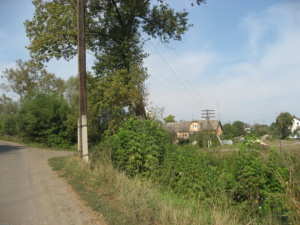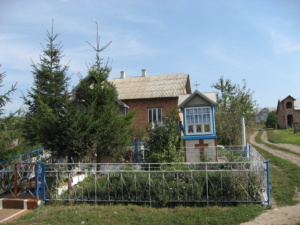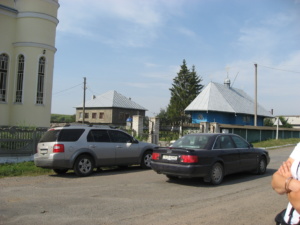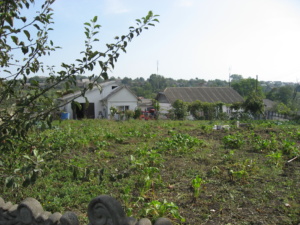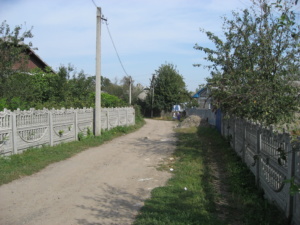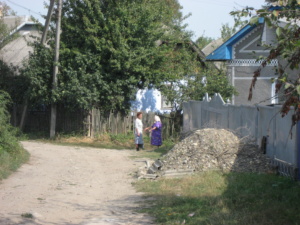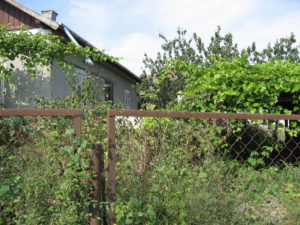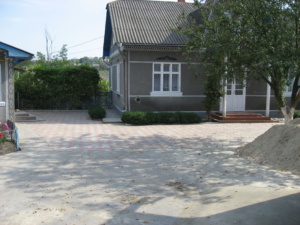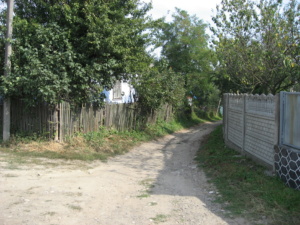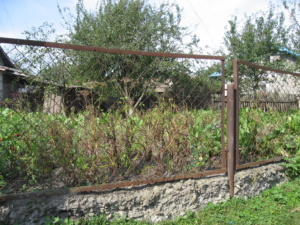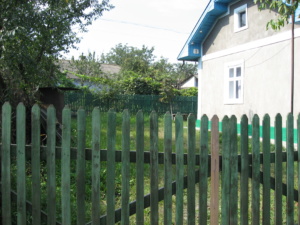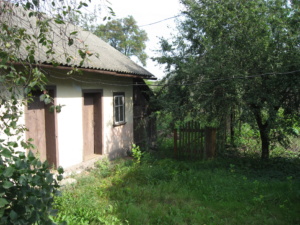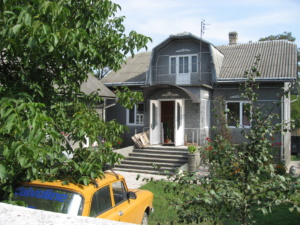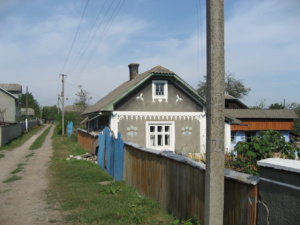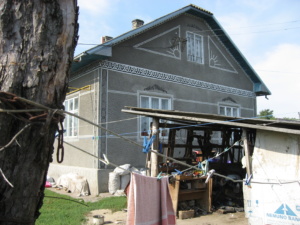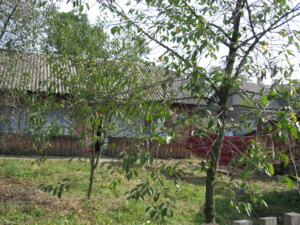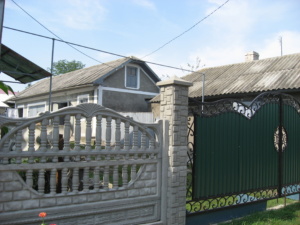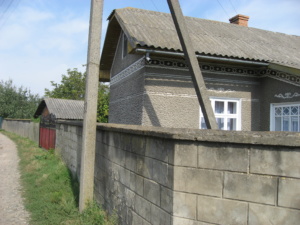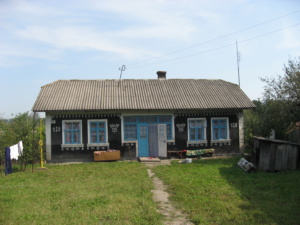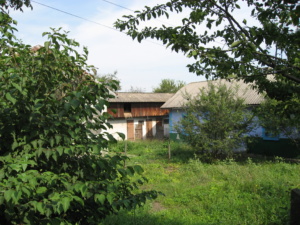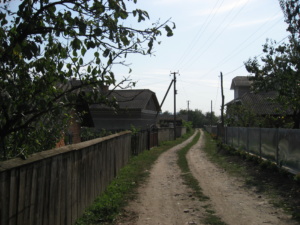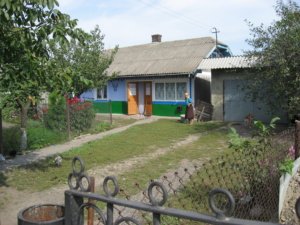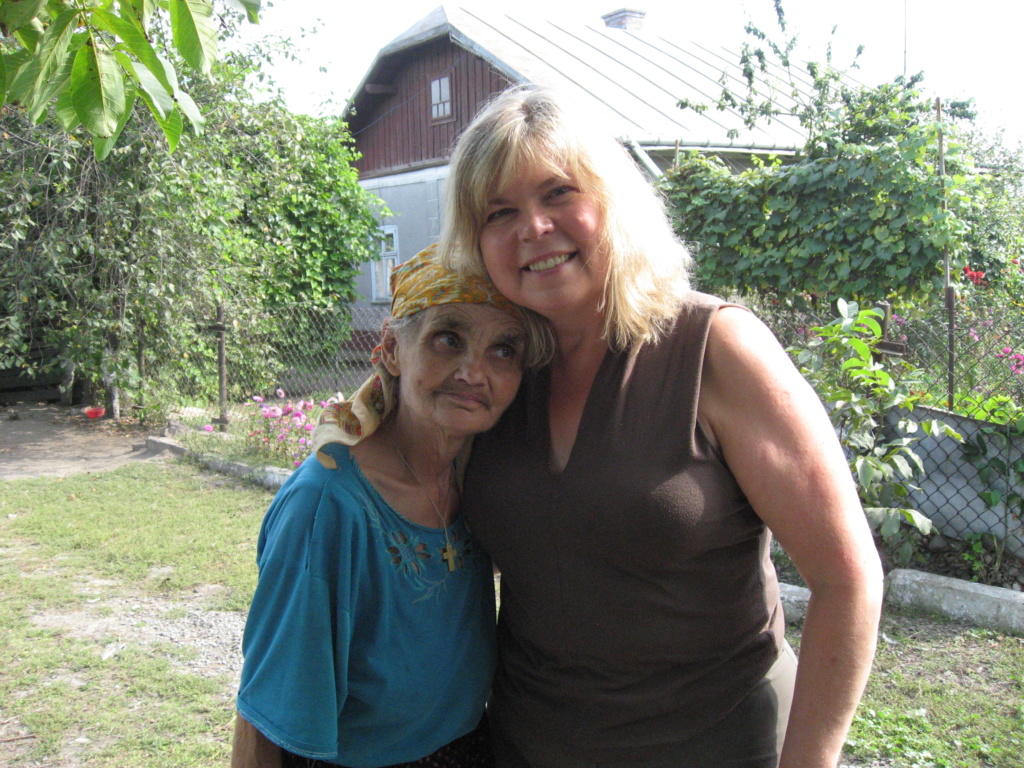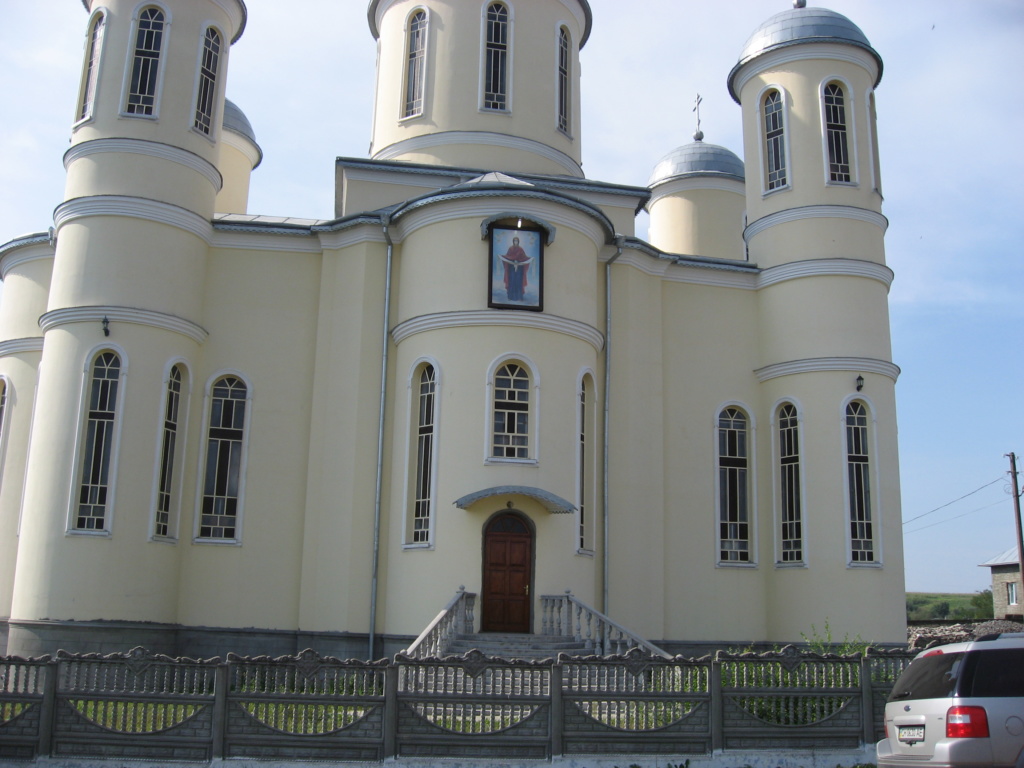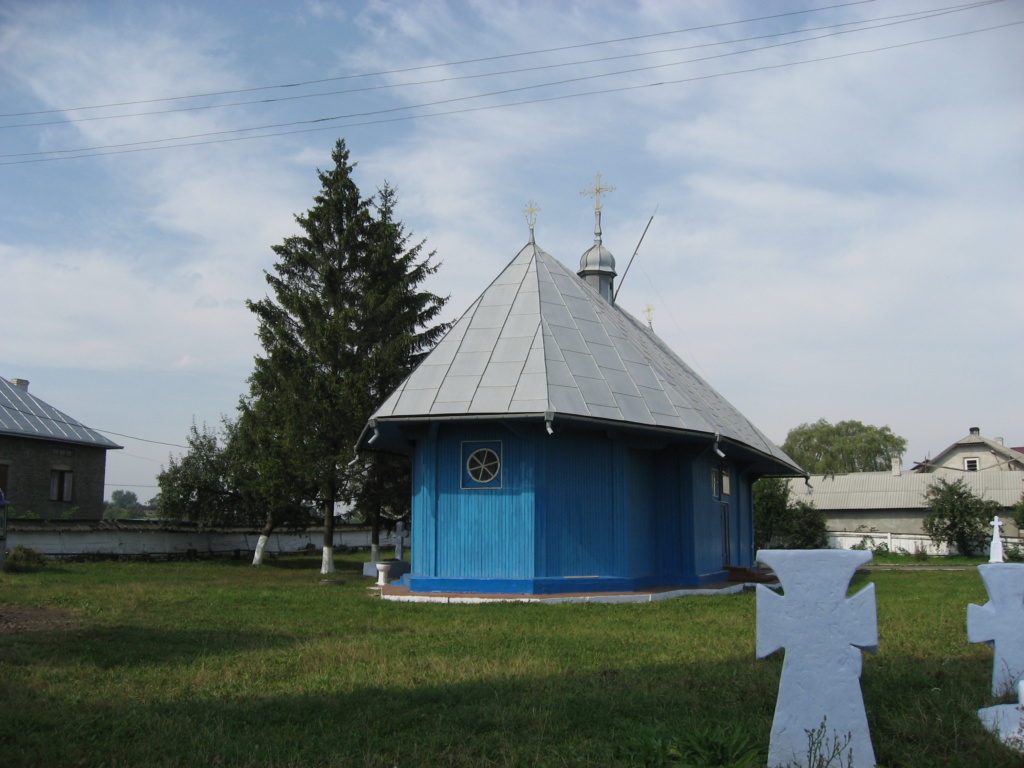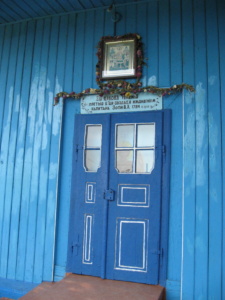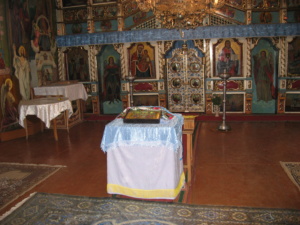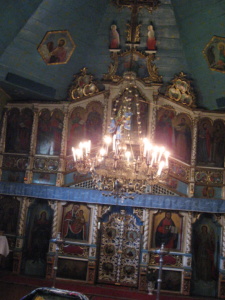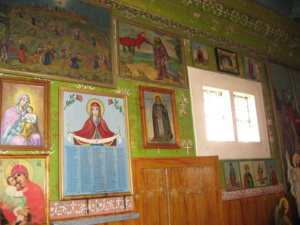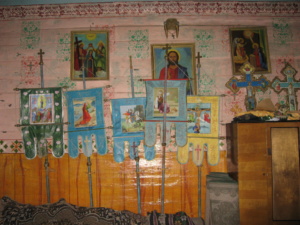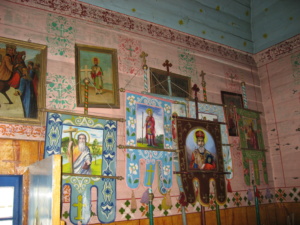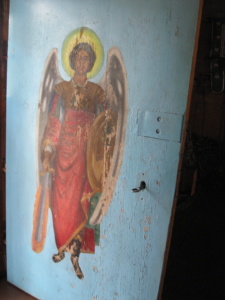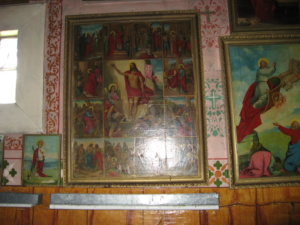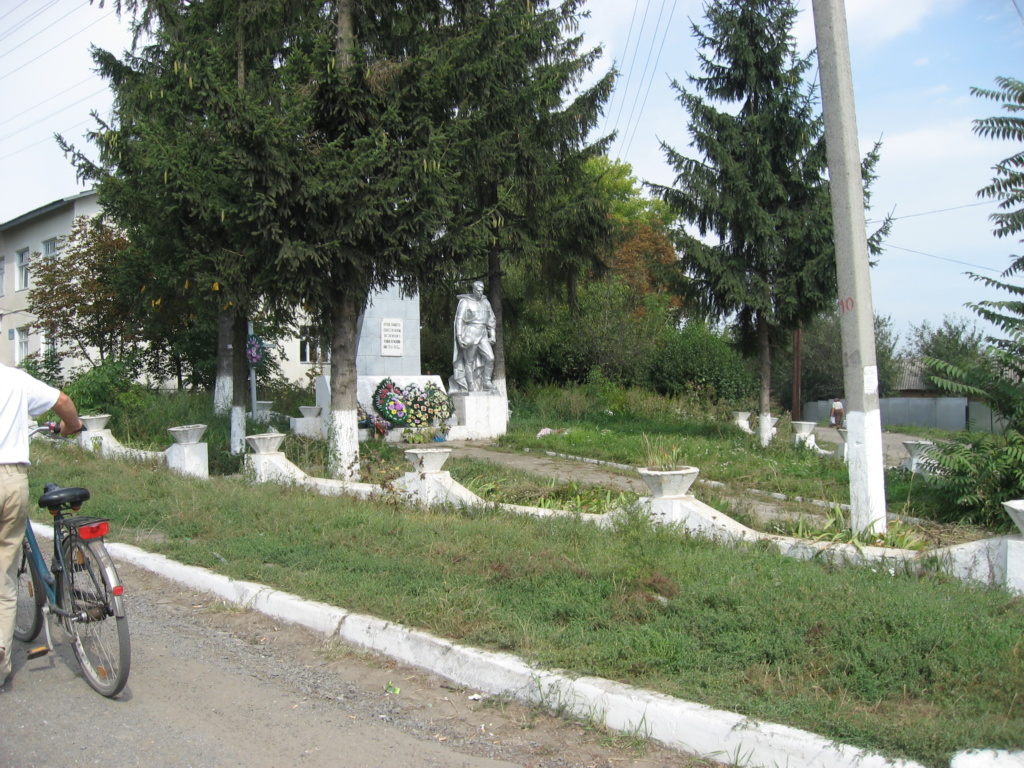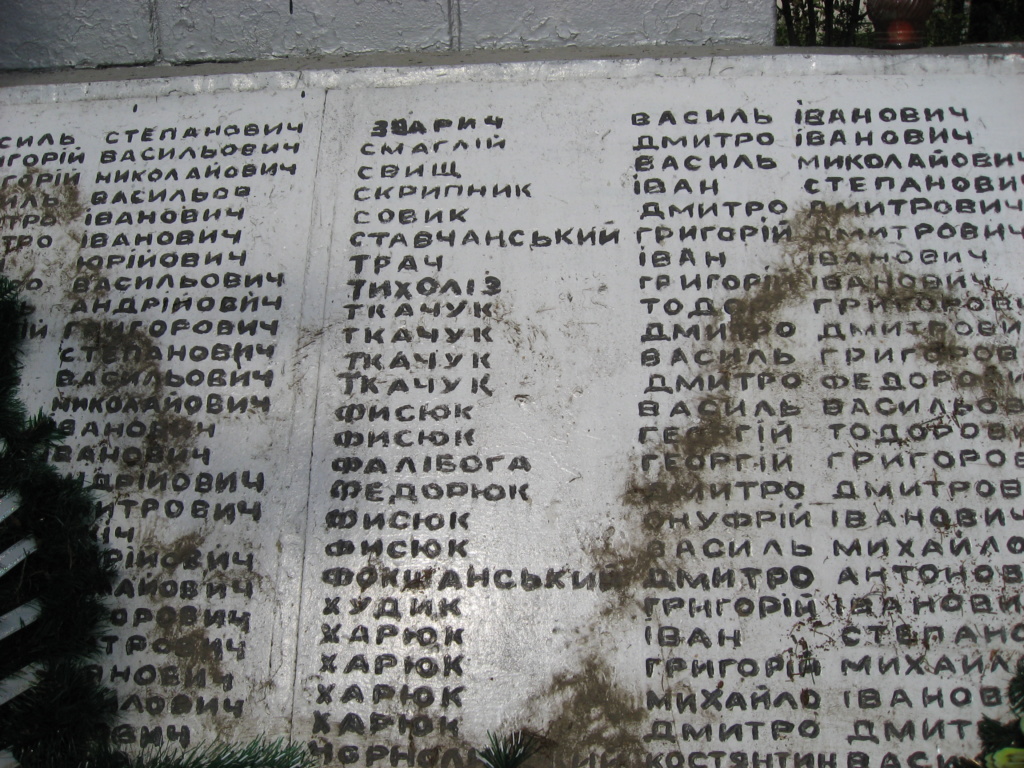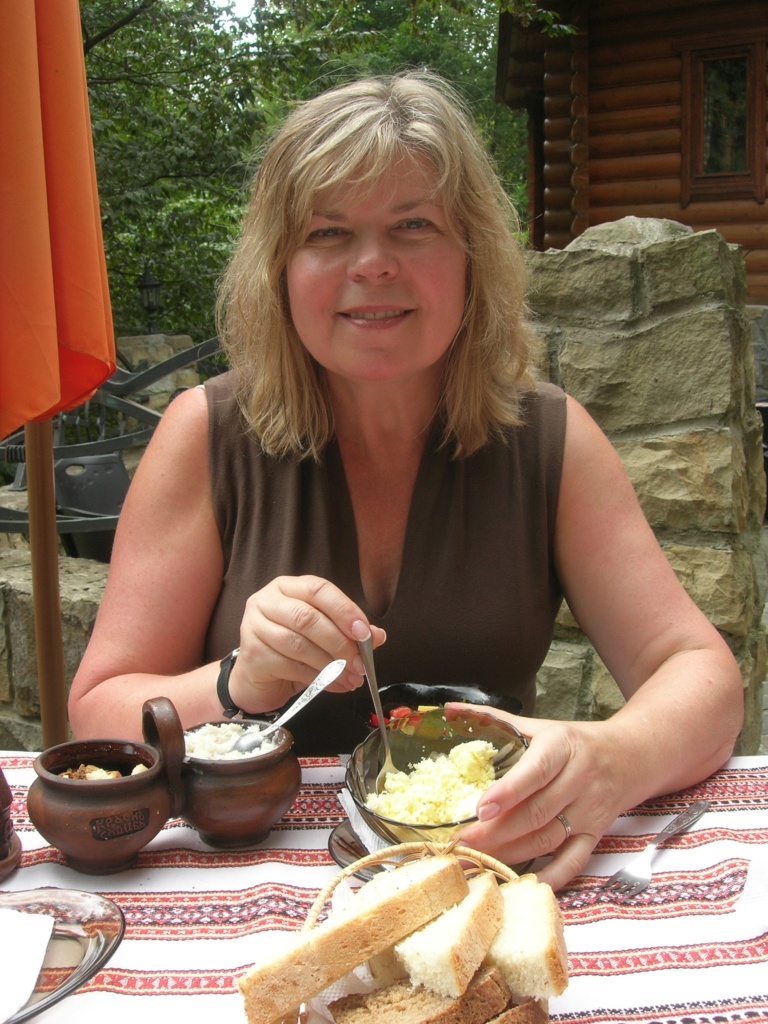This morning, Eugene asked one of the taxi drivers for some help, he gave the directions, and then a few minutes later, he caught up with us and directed us away from a turn we were about to make, calling out the window, “If there are signs to Ternopil, do not turn.”
We got gas, which was not as easy as it sounds. The first pump had no gas and we had to get into another lineup. The gas station was selling coca cola and since Natalia now has the bug I had yesterday, we bought cokes. They keep the refrigerator locked until you pay and then the open it remotely.
Once we got out of Chernivtsi we had good roads and traffic for all of a kilometer or two and then we came to almost a standstill because there was a group of cyclists with a medic behind and police in front and traffic couldn’t pass. One van bumped a couple of the cyclists and knocked one down. We were finally able to pass and we went through Kitzman and then finally saw the sign to Verychanka.


What a beautiful village. When you first turn the corner, there are lush  green trees and then they open up to a meadow and a pond.
green trees and then they open up to a meadow and a pond.
A bit further up, you begin to see houses. They’re substantial houses, made of pebbled plaster with decorative edges.
Every house had a large fenced in garden lush with flowers pumpkins vegetables. Lots of pet dogs, two churches and one store that I saw. We walked down a street and took photos and then I took a photo of an old woman who lived across the road from the Orthodox church. She scolded me at first but then Natalia told her who I was and why we were here and she became quite animated. Invited us in to her yard and Natalia took a photo of us together.

Her daughter came out and was chatty. They have no place to work. They live off what they can grow. Her cell phone rang as we were having this conversation. It was the priest’s wife, asking Valya who she was talking to. She must have been watching from the window. When the priest’s wife found out who we were and what we were looking for, she sent her husband out to greet us. The priest told us that he would be able to help us. The church records go back 500 years and he would be able to look up details of marriage, baptisms, and funerals. The city hall has archives. The priest showed us the new Orthodox church that had been built eight years ago and then he went back and got the key for the old church, which was built in 1794. My grandfather would have been baptized in this church.
He let us in and we took photos.
He gave me an icon (plastic) from the church and some prayer missals. He took down my name and email address and said he would look for info on my father’s family and email me back. We drove down to the end of the village and there was a memorial to the people from the village who had died in WWII. There were four Fesiuks. I was thinking it was Feschuk, but it was Fesiuk. There was a Gregory Fesiuk. Also an Onifry and two Vasyls — cousins? At the end of the road was an old cemetery, and a new one. Could have spent a whole day here, but then again, I could have spent a whole day in any of these places. So much to see. What a beautiful beautiful country.
Now we’re on our way to the Carpathian Mountains. Kolomia is first. At lunch, at a restaurant called Yaremche, I had some brynza, a kind of cheese my father has been trying to get at home for ages. It was quite tasty. Sharp yet mild, sort of like crumbly cheese curds.

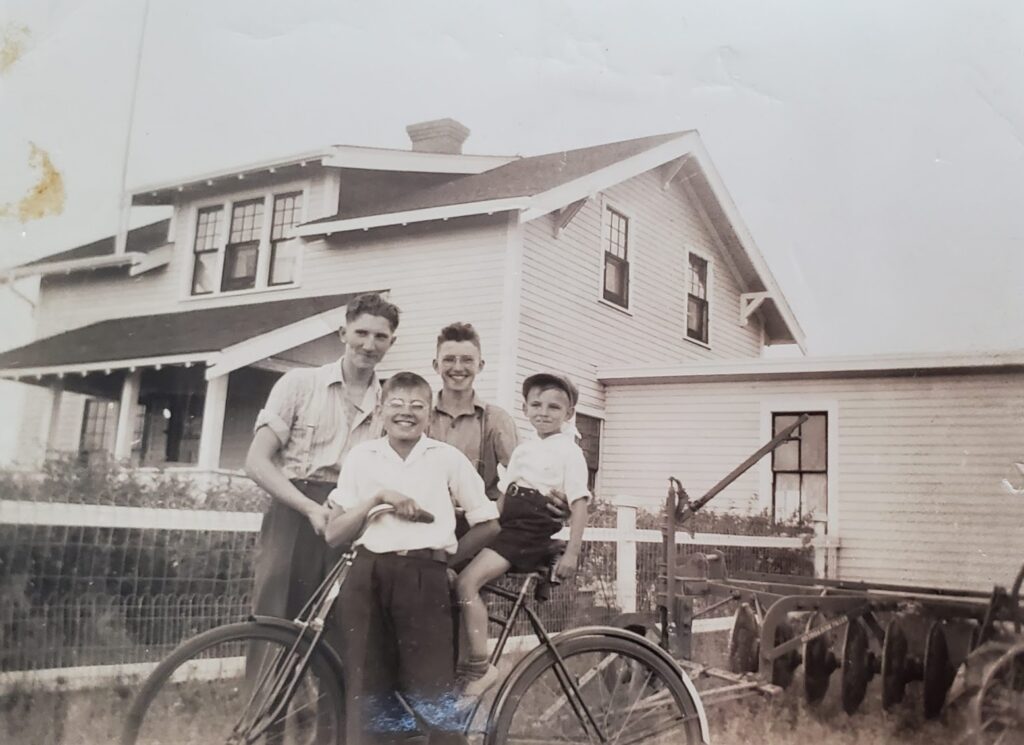

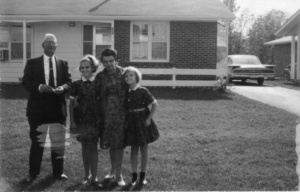
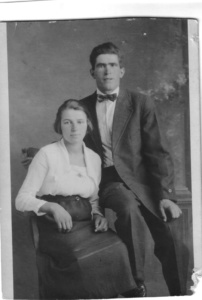
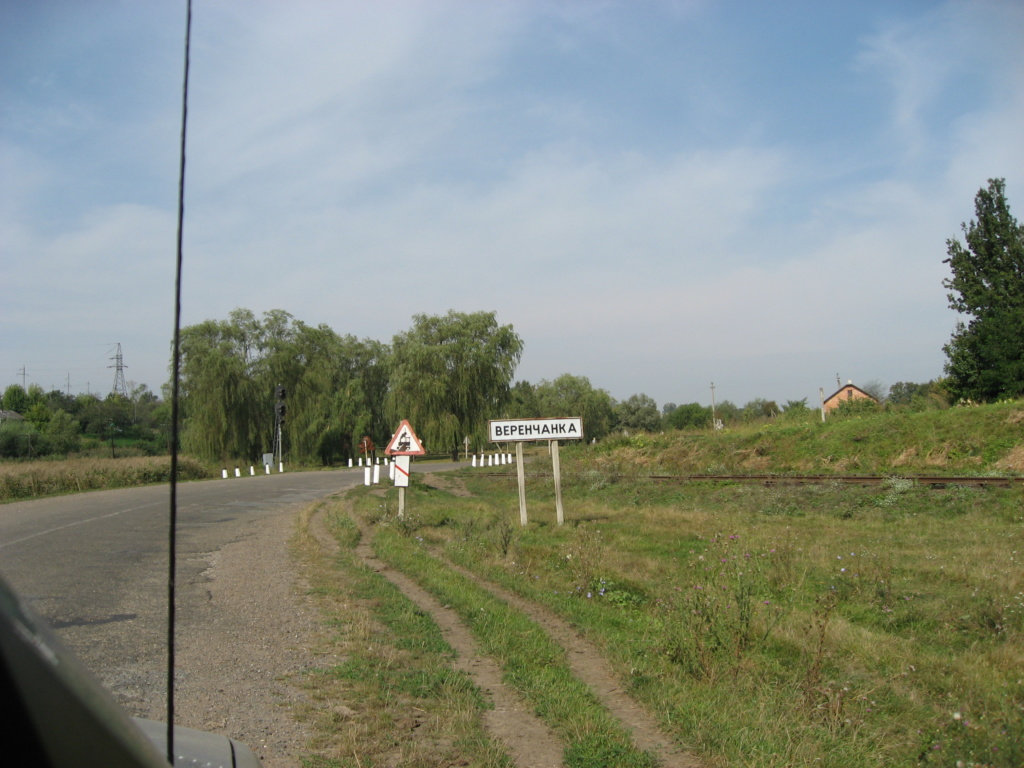
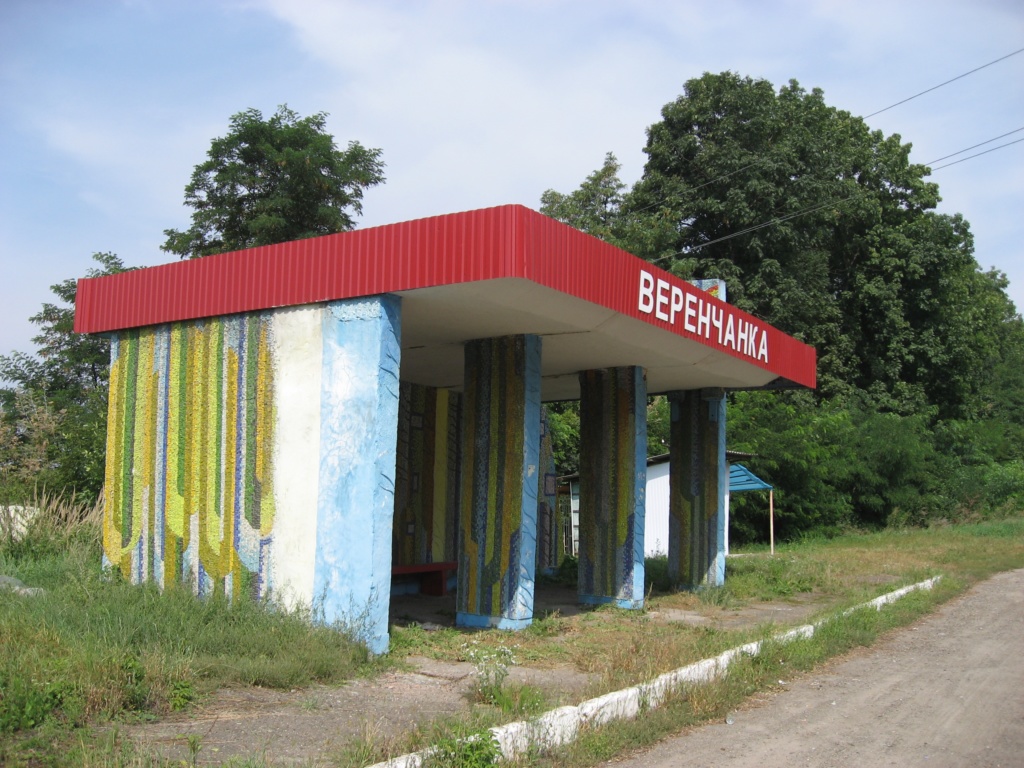
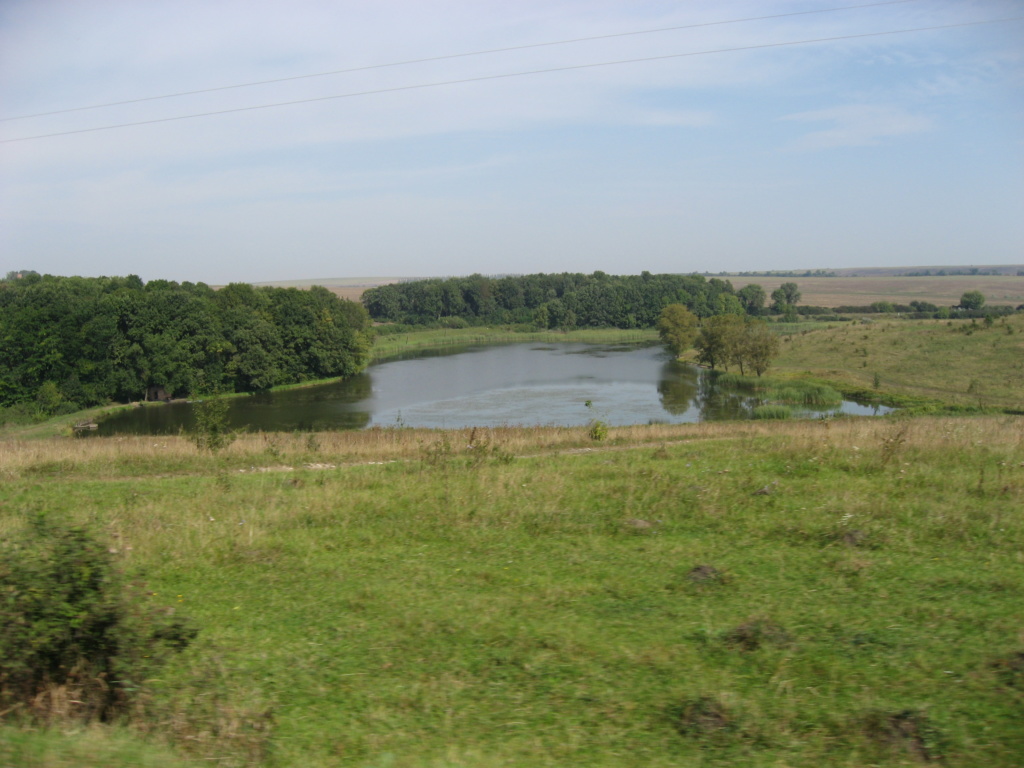 green trees and then they open up to a meadow and a pond.
green trees and then they open up to a meadow and a pond.